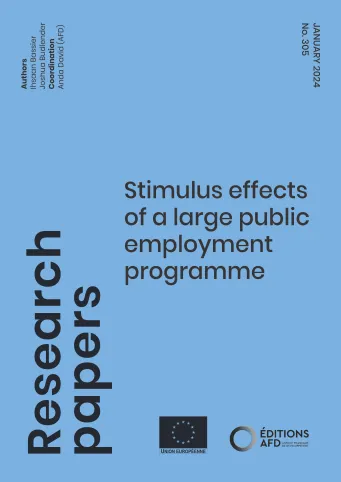Share the page
Stimulus effects of a large public employment programme
Published on

We characterize the spending and factor income effects of a large public employment programme in South Africa. We match anonymized participant IDs with weekly individual-level sales data from one of the country’s largest retailers, and estimate the treatment effect on participant spending at the retailer. Our event studies show flat pretrends with a sharp increase in average spending of 15%. Effects are substantially higher for nonfood products that likely have higher income elasticities, and there are smaller positive effects of 4% that persist in the months after the end of the programme. We use administrative firm data, input-output tables and a survey of participant spending to extrapolate effects of the increase in retailer sales on domestic factor incomes, particularly highlighting effects on the national and local wagebill. Our estimates contribute to evidence that government spending programmes benefit non-programme employment and wages.
Useful Information
-
Authors
-
Ihsaan Bassier, Joshua Budlender
-
Coordinators
-
Edition
-
305
-
Number of pages
-
38
-
ISSN
-
2492 - 2846
-
Collection
-
Research Papers
